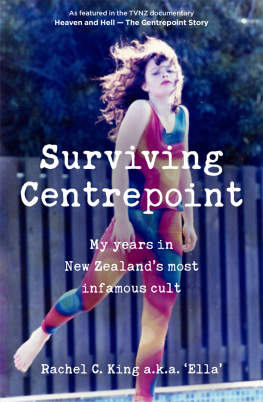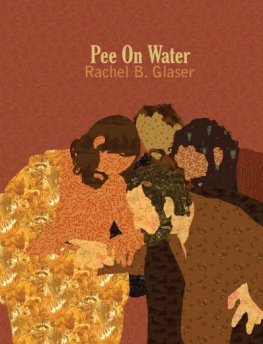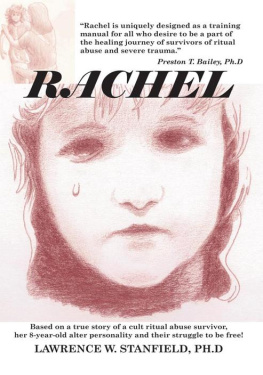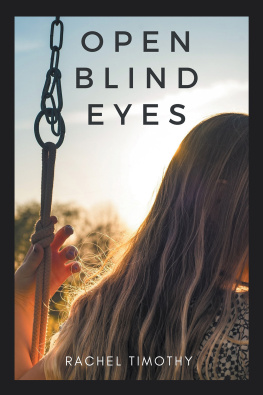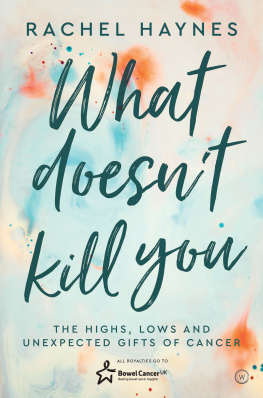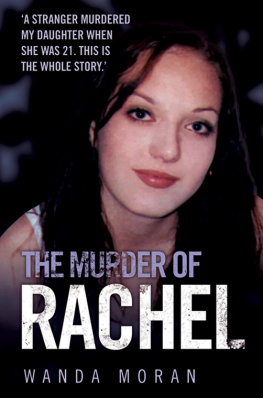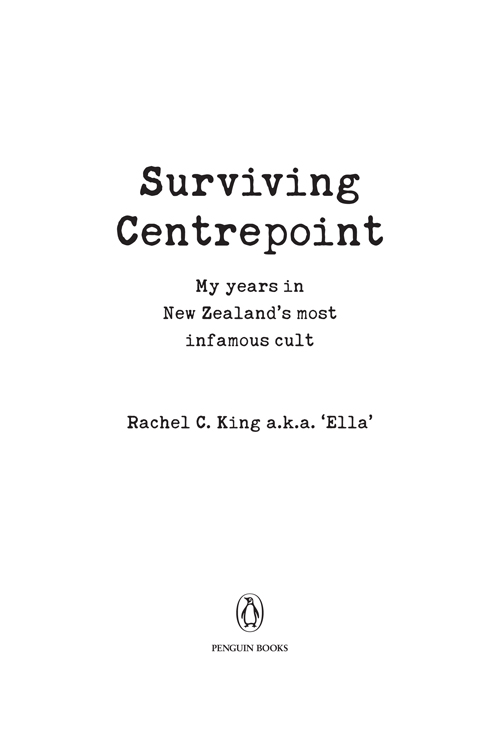Shortly before I turned 13, my life changed forever when my family moved to the notorious Centrepoint Community on Aucklands North Shore, then at its peak. Centrepoint was founded by Bert Potter, its spiritual leader. He called himself God. During my four years there I was pressured into inappropriate and often frightening situations. Like so many others, I have lived with the trauma and shame of these memories, but I have survived. This is my story.
In this intimate and harrowing account, Rachel C. King tells the story of her time at Centrepoint. Through her young eyes, we experience this hippie dream turned nightmare, with its bizarre rules, hierarchies and social controls. It was a place where children were given drugs, free sexuality was mandated, including between adults and children, and to resist was actively discouraged. She describes the fear and confusion of growing up in a corrupt world where wrong was right, and the grief of losing her childhood. She takes us inside the police case against her abusers, and the historic action that ultimately saw Potter and others charged with drug and child sex abuse crimes, and Centrepoint shut down.
I dedicate this book firstly to my children. My heart, my life, my reason for continuing.
To Courtenay, who scooped me up when I tripped. And continued to love me.
Finally, to all who once lived as children at Centrepoint. May my story give you hope, courage and resolve. You are not alone.
Authors note
Shortly before I turned 13, my life changed forever when my family moved to the Centrepoint Community on Aucklands North Shore.
Centrepoint was founded by Bert Potter and was at peak capacity at the time. He was its spiritual leader. He called himself God.
During my four years there, I was forced into inappropriate and at times frightening situations by many of its adult members, including its counsellors. Free sexuality was strongly encouraged including between different age groups and to resist was actively discouraged.
I was given drugs. I was told at the time they were a treat. As an adult I can see only darkness behind the intention in giving them to me, a child.
I now see the corruption. Senior officials and Centrepoint members, instead of protecting children, enabled and protected the perpetrators of abuse and lengthened the suffering of the most vulnerable.
During those years at Centrepoint, I was told that what was happening on the inside was right, and that the outside world was wrong. Witnessing the shocked response people had to my book helped to confirm that everything that had happened to me was, in fact, wrong.
Seeing my book published was both powerful and terrifying. I first wrote it under the pseudonym Ella James, in 2013. My intention in doing so was to protect the privacy of both myself and of others. Therefore, the entire story and the full horror of my life at Centrepoint have not and may never be told.
Now, for the first time, I am using my own name, so that my story can give hope to other survivors that may be struggling.
This is not our shame to carry. I finally give back the shame of what happened to me to the predators who stole my innocence.
This is my story.
The Centrepoint Community
The Centrepoint Community was founded in 1977 by Herbert Thomas Potter, psychotherapist and facilitator of encounter groups. Potter was born in Christchurch on 20 May 1925, and educated at Christchurch Technical College and Otago University. He graduated as a teacher, taught for a short period of time, and then moved successfully into sales and later into business. After attending several courses in human psychology, he decided to pursue a career in therapy and set up the Shoreline Human Awareness Trust in Dunedin, under whose auspices he experimented with radical encounter-group therapy.
Earlier in the 1970s Potter sold his home and business. He and a group of like-minded people lived communally in a central suburb of Auckland, where they conducted encounter groups and counselling. Success with this enterprise spurred him on. Buoyed with the idea of running a larger, self-supporting community, he travelled to Pune in India to meet the controversial guru Bhagwan Shree Rajneesh and spend time in his ashram. On his return to New Zealand Potter proclaimed himself a spiritual master and was ready to begin his new, more ambitious venture.
Potter and members of the suburban community group set about making this happen. They pooled their funds, purchased a thirty-acre bushland property in Albany, north of Auckland, and moved into an old farmhouse situated on it. Some slept in tents which they pitched nearby. The founding group comprised about twenty adults and their children. In the early years and for some time after they were plagued with difficulties; primarily insufficient accommodation space and inadequate sewerage and plumbing. Overcoming these problems and enlarging their numbers met with bureaucratic restrictions: the Takapuna City Council withheld legal permission for the construction of any new dwellings on the property, and set limits on the number of people who could live there. At one point, as the number of residents increased, the community was forced to move off-site into a series of different accommodations. Eventually the council changed their position. Permits were issued and new buildings to accommodate living and working spaces sprang up. Centrepoint Community, as most of its members experienced it, came into existence. On 19 June 1985, Centrepoint was granted permission to accommodate up to 224 residents.
At its peak, over 200 people lived in the community. Roughly half of these were young people babies, children and teenagers in total some 300 over the twenty-two years of Centrepoints existence. In addition to this a number of non-resident adults and teenagers had varying degrees of contact with the community but were not considered fully fledged members.
New and modified buildings housed the dining, sleeping, ablution and business areas. A large proportion of funding for new construction and for the day-to-day running of the community came from the residents, who were required to surrender all of their savings and liquidated assets to the community trust when they first became full members. Further income was provided from businesses on-site: the manufacture and sale of pottery, weight-lifting equipment, wooden puzzles, handmade flax paper, cedar-wood hot tubs, fashion garments hats, tie-dyed silk fabrics and hand-painted silk dresses. A number of people had jobs outside the community and their earnings also went into the communal coffers. Once the community was established, the environment appeared prosperous and well maintained, with lush, beautiful gardens and a big swimming pool.
Living at Centrepoint meant living according to Potters beliefs. His ideas were inculcated in a wide range of ways. He discouraged conventional religion in any form, but promoted popularised versions of Eastern mysticism and hippie free love. Centrepoint was promoted as a spiritual community; Potter claimed he was God and that spirituality and love flowed from him. Members of the community were encouraged to strive for uninhibited emotional and sexual expression. The overriding principle behind this was to liberate them from the damaging constraints instilled by society. People were challenged to experience everyday issues in new ways.

